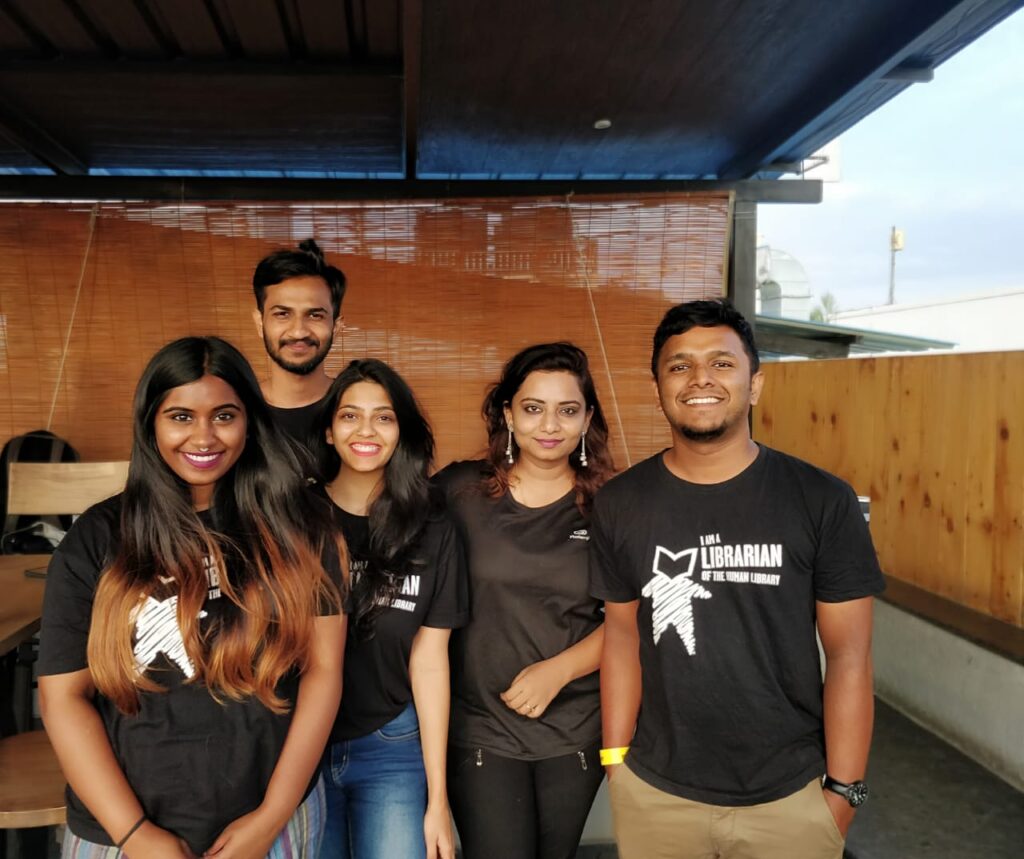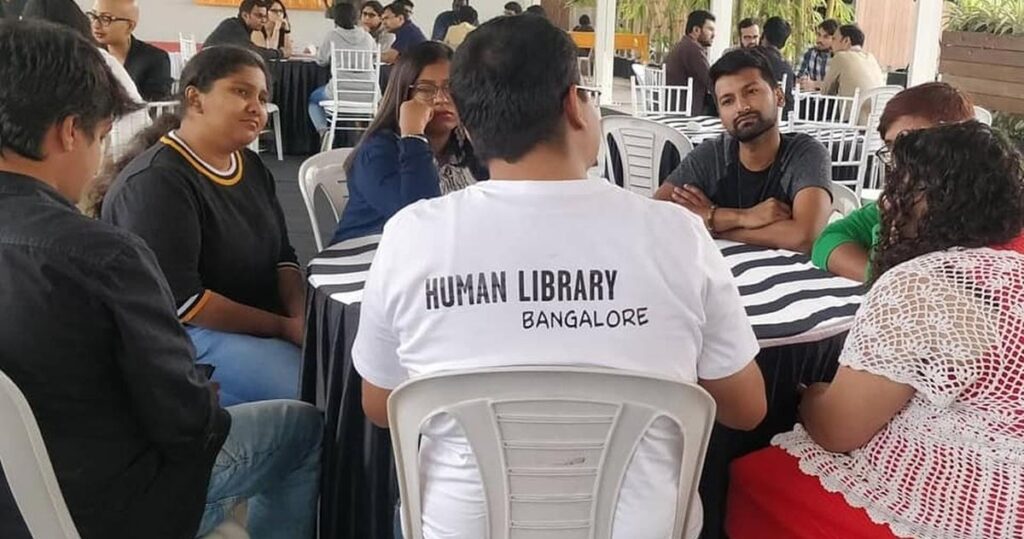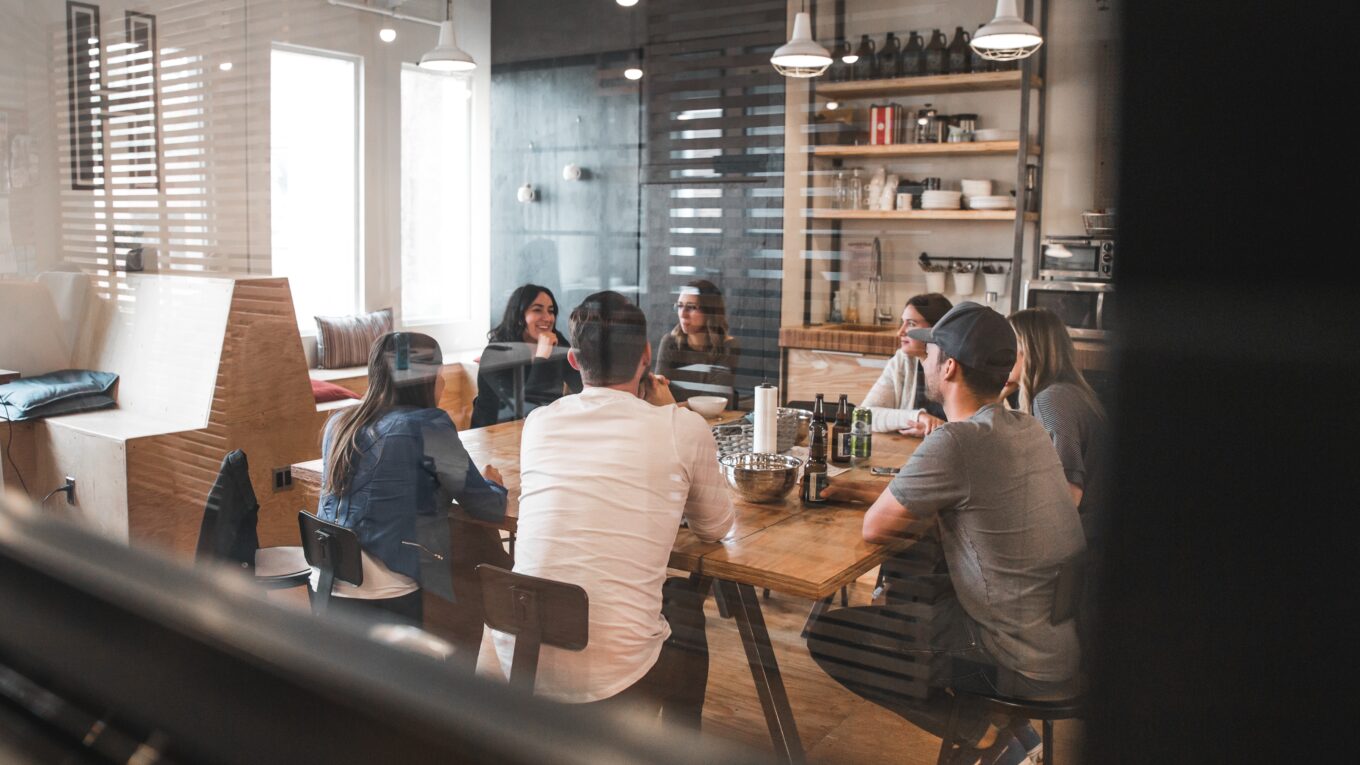Interview with the team behind The Human Library, Bangalore
The Human Library – the only place you can borrow ‘human books’ and listen to them share their experiences, is a relatively new concept in India. This unique idea that first began in Denmark has now reached most cities around the world. The initiative aims to create a safe space for conversations where one can openly discuss various topics, or in this case, experiences, with their readers. We recently got to interact with the young and vibrant team behind The Human Library, Bangalore, and here’s what they have to say…
What is the ‘Human Library’? Do tell us about its origin.
What started in Denmark as a small event has today reached cities across the globe. The Human Library® is an international not-for-profit organization that was founded by Ronni Abergel in 2000. To put it simply, it’s a library of people. A story-telling platform, if you will. Every human book comes with a story about a prejudice or stereotype that they have faced. Readers borrow these books and listen to the stories, thereby starting a dialogue.

This is a relatively new concept in India. How has your journey been so far?
Nothing short of fantastic. We started as a team of five in August 2017, not knowing how this works or if we’d even have an audience. I still remember our first event – we were expecting around 25 people. But almost 200 of them showed up. So, four years later, here we are. We’ve now done plenty of public and private events. Of course, we’ve also had our fair share of ups and downs, but that’s a part of everything you do in life.
What can one expect at a Human Library Bangalore session?
A safe space for conversations. The idea is to allow people to communicate about taboo subjects that the Indian society shies away from, like mental illnesses, sexuality, body image, religion, etc. It is also a great event to network with people.
How can someone become a book, and how can someone become a reader? Are both positions open to anyone?
Anyone with a relevant story can become a book. All they have to do is fill up a form. We reach out to them, listen to their story in person, and understand if they’re comfortable sharing it and answering questions about the same. As for being a reader, everyone is welcome. Even our books love reading other books. Also, we have the most enthusiastic set of volunteers. Ever.
What kind of people usually sign up to be books?
We get all kinds of people but primarily those who have access to the internet and are well-versed with English. However, we are in the process of making this more inclusive to people from all sections of society.
What have been your biggest obstacles in bringing this concept to Bangalore and how have you dealt with them?
We honestly haven’t had to deal with too many obstacles because everyone from our venue partners, media partners, and food sponsors to the corporates and campuses that we’ve worked with have been nothing but amazing. The initial license registration was painful and the lack of funds pinch us once in a while, but we manage! Pizza parties keep our spirits high.
Tell us about what goes behind organizing a ‘Human Library’ event.
Well, to start with, we interview books and venue partners to finalize everything. We love hosting events at The Hub, but we move around to reach out to more areas in the city. Once the event date has been set and we go live with it, we focus on reader registrations. We don’t usually go beyond 250 unless we’re hosting a larger event. Post that it’s all about showing up at the event with a group of volunteers, monitoring the sessions, and making sure everything goes smoothly.
Any memorable incident/ story during your events you’d like to share?
During one of our earlier events, a 19-year old reader broke down during a session on gender identity. It turned out that they had been facing trouble at home for coming out as queer, to the extent where the family was forcing them to undergo various ‘treatments’ for it. The book helped them calm down and guided them to a therapist. This is why we do this.
What book has been the most popular one so far?
We can’t give you just one because most of our book titles are full houses. Some of the popular ones include – Bisexuality, Depression, Polyamory, Drag, Sexual Harassment, Introversion, Addiction, Queerness, and so many more!
What’s the most satisfying thing about organizing these events?
I think we do this only because we’ve seen the impact it has had on people. When one story makes even two people out of the hundreds feel like they’re not alone, it is worth it. Plus, we get to wear our cool T-shirts.
What are your plans for the future?
As of now, we’re still trying to figure out a way to do online events till it’s safe to have everyone together in the open again. Apart from that, we’re looking forward to including more books for our readers from different sections of the society. That’s all for now!





